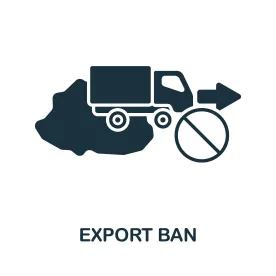Between Russia’s invasion of Ukraine and growing U.S. tensions with China, U.S. export controls are in the spotlight like never before. As if regulators have not already made it clear enough, recent statements and actions indicate that the enforcement crosshairs are squarely on the semiconductor industry.
Background
Beginning back in February, 2023, the Bureau of Industry and Security (BIS) and the Department of Justice (DOJ) launched a new Disruptive Technology Strike Force, aimed at “protecting U.S. advanced technologies from [the] illegal acquisition and use by nation-state adversaries.” The strike force brings together, the FBI, Homeland Security, and U.S. Attorneys’ Offices across the country focused on protecting critical technological assets including among others, supercomputing and exascale computing, artificial intelligence, and quantum computing (i.e., all areas related to semiconductors).
Then on March 2, 2023, BIS, DOJ, and the Office of Foreign Assets Control, issued a first ever joint Tri-Seal Compliance Note, providing the private sector examples of red flags where a third-party intermediary may be engaged in efforts to evade sanctions or export controls. The Note, as made clear by examples of enforcement actions, underscored how the agencies would not hesitate to pursue criminal or administrative charges against companies and individuals violating export control laws.
A month later, BIS issued a compliance memo (which we discussed here), highlighting the continued focus to control U.S. technology security breaches, especially in the semiconductor and advanced computing industries. It also announced that companies or individuals who tip off their competitors’ wrongdoing can be used as a mitigating factor for the disclosing party in any future enforcement action against that party.
Recent Enforcement Actions
Although not all related to semiconductors, a raft of recent enforcements indicate that BIS is ramping up its enforcement activity:
- BIS Takes Action Against Companies and Individuals for Attempting to Divert Electronics and Aircraft Parts to Russia (May 16, 2023)
- Justice Department Announces Five Cases as Part of Recently Launched Disruptive Technology Strike Force (May 16, 2023)
- BIS Imposes $300 Million Penalty Against Seagate Technology LLC Related To Shipments To Huawei (April 19, 2023)
- BIS Imposes Administrative Penalty Of $497,000 To Resolve Allegations Of Conspiracy To Divert Radiation-Hardened Silicon Wafers To Russia (September 28, 2021)
Recent comments by DOJ (which we discussed here) and BIS leadership underscore the continuing focus on export controls. Matthew Axelrod, the BIS Assistant Secretary for Export Enforcement, remarked that enforcement actions are “just the beginning…You can expect to continue to see actions come out from the [Disruptive Technology Strike Force] as this work continues.”
Takeaways
- Ample Warnings: As geopolitical tensions continue to rise, enforcement agencies have steadily given warnings and guidance on their focus of export controls. This will be a major area of enforcement in the years to come. Companies are on notice and should take care in reviewing their export control policies and procedures.
- Examining Logistics Chains and Sales (Including Resellers): The best positioned companies are conducting risk-based due diligence on customers, suppliers, intermediaries, collaborators, and transaction partners. Companies may still be held liable if they do not exercise reasonable care and diligence regarding the sources of their items or where U.S.-origin items end up and who may be using them.
- Effective Compliance Programs: Effective compliance programs are routinely updated taking into account products and services, customers and counterparties, and geographic locations. Depending on a company’s size and sophistication, risk assessments, testing, and auditing on potential evasion should be considered. Good recordkeeping and training are critical to compliance programs.




 />i
/>i
